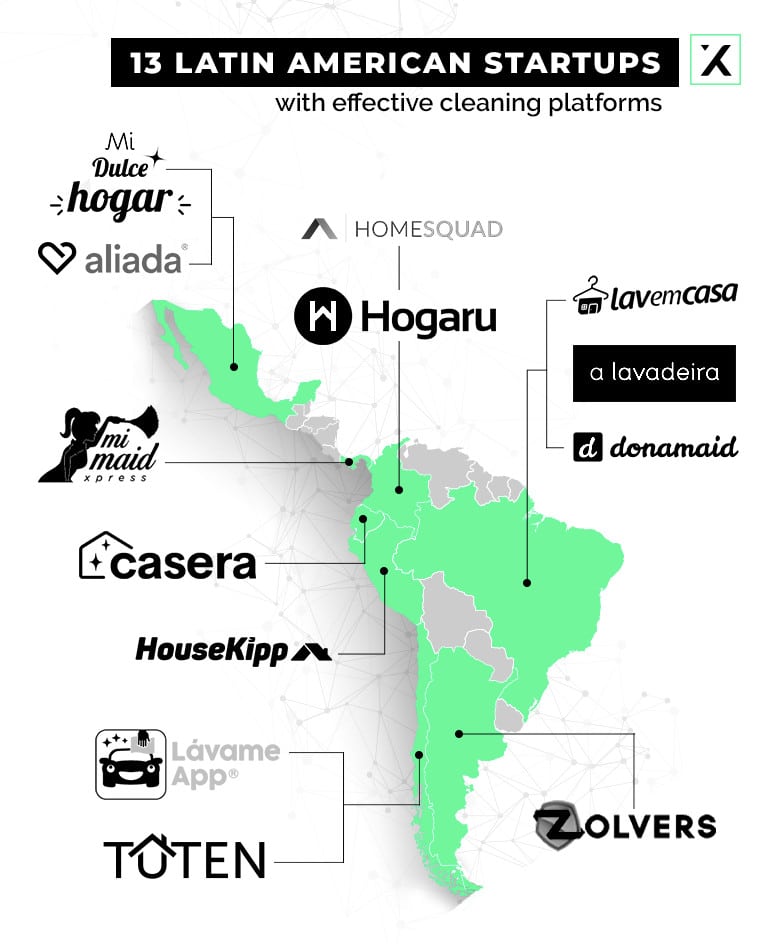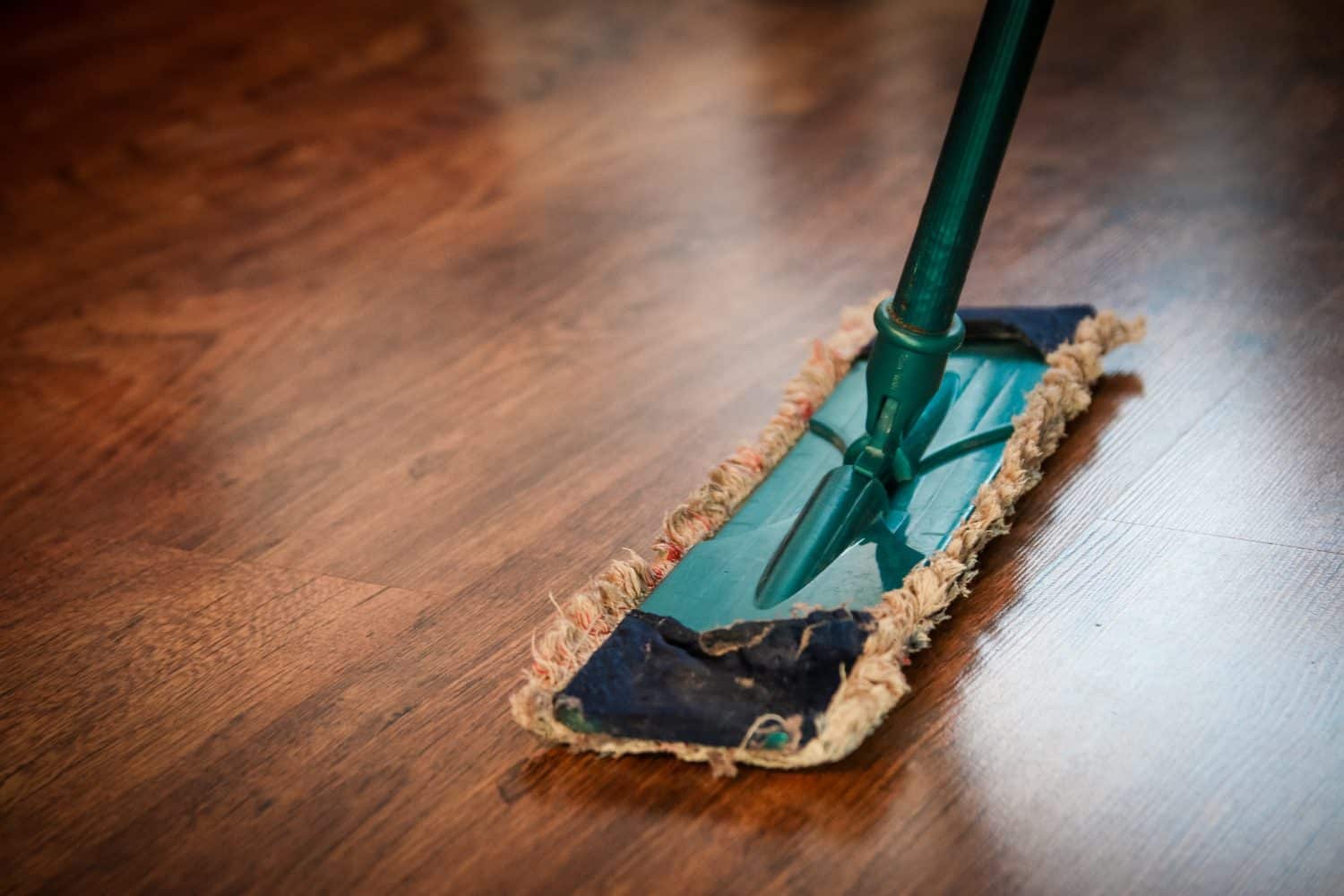Contxto – Various startups in Latin America are creating platforms to better serve domestic workers. Whether for your home, automobile, or clothing, there are always work opportunities around these everyday necessities.
Based on the challenges of being a domestic worker, though, below are some startups ensuring that everyone from car washers to housecleaners can obtain reliable work. Some even are providing the work benefits these workers deserve.

Aliada (Mexico)
This marketplace of cleaning professionals is one of the best known domestic help networks in Mexico. It formalizes work arrangements by providing background checks of employees without any hidden fees or surprises.
On top of this, workers receive medical insurance, economic incentives and educational opportunities for their personal development. It has raised over US$950 thousand since its 2015 founding.
Hogaru (Colombia)
Created by CEO Matteo Cera, the digital platform dispatches cleaning personnel to homes and offices in Colombia. In 2017, it performed around 19,000 cleaning jobs a month, only to grow by almost half.
Nowadays, it does around 30,000 jobs a month, according to Cera’a LinkedIn. Part of the Wayra portfolio, tech accelerator Y Combinator invested US$120 thousand in Hogaru the same year. Services are available for both homes and offices.
A Lavadeira (Brazil)
Specializing in home-delivered laundry services, A Lavadeira provides online tracking, status checking, accessing information about deliveries, and invoices for your apparel. Meaning “the washerwoman” in Portuguese, today A Lavadeira operates around São Paulo and Campinas.
Zolvers (Argentina)
What started as a program to connect domestic workers with contractors and work formalities in Argentina has evolved into a microcredit lender for thousands across Latin America.
Founded in 2013, this online and mobile marketplace allows individuals to “outsource” common household tasks ranging from cleaning, delivery, to maintenance.
Donamaid (Brazil)
Based in Pelotas, Brazil and founded in 2016, Donamaid is developing technology for “millennial” cleaning services. The app allows users to hire a professional cleaner on an hourly basis at home or even the office.
All the while, Donamaid’s blog provides some useful insight into the cleaning industry. One example includes how to clean various types of office floors, depending on the construction material.
MiMaidXpress (Panama)
This Panamanian online platform connects workers with cleaning jobs across the Central American country. Committed to de-complicating the process, it ensures that employees get paid on time. Workers themselves also set their own work schedule to provide them more autonomy.
HouseKipp (Peru)
With technology ranking high in its business model, HouseKipp has designed a housecleaning robot capable of washing small windows. Originally, the pain point was to reduce the risks involved in washing glass, especially when there is some elevation involved.
Not only does the startup use machines, but also human cleaners in residential and office spaces. Grover Ramírez is the company CEO. Previously, it participated in the StartUp Peru accelerator where it raised funds.
Lavame (Chile)
No need to go to the carwash with the Lavame, Chile’s first technological app bringing car cleaners right to your home. Available on Android as well as iOS, users can order dry cleaning, meaning no water, from anywhere with coverage.
Two options are available – express and full. Express consists of exterior washing, waxing, polishing, in addition to tire cleaning, all with ecological products according to the website. Full includes all of the first but with interior services added.
Casera (Ecuador)
Luis Moreira and Juan Carlos Morales launched Casera in 2017. From the beginning, they were determined to make it easier for households to complete daily chores. Since then, this Ecuadorian domestic cleaning website competed as one of the finalists at Platzi Demo Day 2017.
According to the company, one-time cleaning jobs go for US$8 an hour for a minimum of three hours. Weekly scheduled visits for at least three hours a session run for US$5.99 an hour.
Tuten (Chile)
Tuten goes above and beyond domestic cleaning help with its holistic services. Besides cleaning, it offers electricity repair, plumbing, TV installation, locksmithing, ironing, and much more. All of these services are provided by contractors from the Tuten database.
In 2015, it was the only Chilean startup finalist in the MassChallenge accelerator competition. Past funders have also involved Corfo, Microsoft, as well as other private investment funds.
Mi Dulce Hogar (Mexico)
Meaning “my sweet home” in Spanish, this startup began in Guadalajara but recently announced plans to launch in Mexico City. CEO Estefanía Hernández founded the company in 2015 to “outsource” common household tasks.
The platform is known for being flexible and on-demand, helping transform Guadalajara’s gig economy with its technology. Even more, it supports workers’ rights by helping them formalize work arrangements. Forbes Mexico also named the company as one of the 30 most promising startups in 2018.
HomeSquad (Colombia)
HomeSquad also began as a tool to officiate work formalities among female domestic workers. The Colombian startup participated in the BBVA Momentum where it received personalized business mentorship.
Lavemcasa (Brazil)
Clients at Lavemcasa can subscribe to daily or recurring laundry and dry-cleaning services over the app. All you have to do is place the order and somebody will soon arrive to pick up your belongings.
From there, clothing will be washed and delivered back to your home. Today, this on-demand service exists in Sao Paulo, Belo Horizonte, Curitiba, Brasilia, Goiania, Fortaleza, and Blumenau.
Conclusion
Considering that over half of Latin American workers are not covered by social security, startups such as the aforementioned are certainly bridging the gap with their business models. Only 26.6 percent of domestic workers in the region received social security benefits in 2018, according to a report by the International Labour Organization.
At the same time, these are only a handful of Latin America startups doing such good work. Obviously, I wasn’t able to discuss every startup in the region, so if I’m missing any, please let me know in the comment section.
-JA






